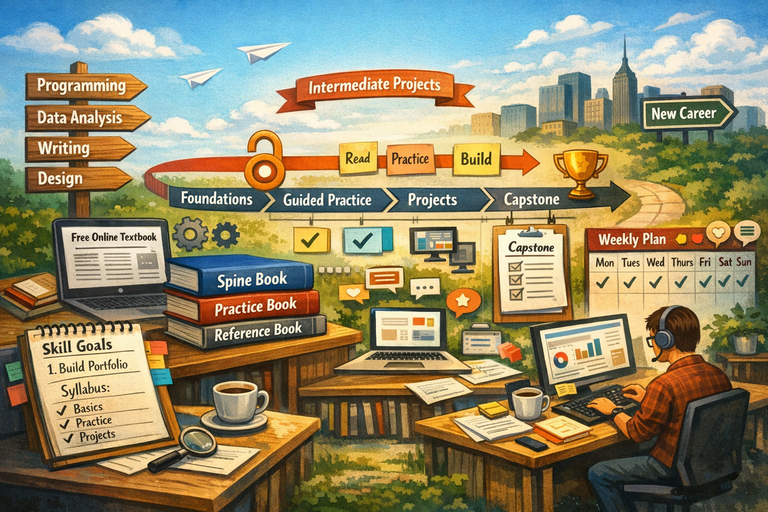The American Dream in Business-Themed Novels
The American Dream—a belief in the promise of success through hard work, determination, and opportunity—has long served as the backdrop for countless stories in literature. Nowhere is this dream more vividly examined than in business-themed novels, where characters chase ambition, wealth, and status with unrelenting drive. From Wall Street traders to Silicon Valley startup founders, the pursuit of this ideal reveals both the beauty and the cracks in the dream itself.
Modern business fiction, especially within the fast-paced and reflective world of junkybooks, doesn’t just tell stories of success. It questions what success really means. It unpacks the cost of the dream, who it serves, and who it leaves behind. In doing so, it reframes a foundational idea of American culture through the lens of contemporary business and capitalism.
This blog post dives deep into how the American Dream is portrayed in business novels, what it reveals about society, and why it continues to be a powerful narrative force for readers of junkybooks and beyond.
Defining the Dream in the Corporate World
Traditionally, the American Dream promised that anyone—regardless of background—could achieve success through hard work and perseverance. In business-themed novels, this often translates into stories about characters who build something from nothing. Garage startups become tech empires, internships turn into CEO offices, and ideas become IPOs.
Take “Bootstrapped Empire”, a well-loved junkybook, where a first-generation immigrant launches an e-commerce platform from his cramped New York apartment. The novel follows his journey through financial struggles, institutional bias, and personal sacrifice. His success is not just measured by his company’s valuation but also by his ability to create generational wealth and pride for his family.
This fictional tale mirrors real-life narratives of the American Dream but also asks a deeper question: What do you give up in pursuit of the dream?
Rags to Riches: A Modern Retelling
“Rags to riches” is one of the most enduring themes in American storytelling, and business novels are its contemporary home. These novels explore how ambition can lift people out of poverty and into prominence, sometimes overnight—and other times through sheer grit.
In “The Hustle Index”, a young woman working two jobs in Detroit develops a budgeting app that gains viral traction. As her startup attracts major venture capital interest, the story juxtaposes the excitement of upward mobility with the anxieties of imposter syndrome and societal expectation.
This updated rags-to-riches tale isn’t just about gaining wealth. It’s about navigating identity, staying grounded, and reconciling one’s roots with newfound success. Modern junkybooks handle this duality with sensitivity, reminding readers that the American Dream is personal, complex, and deeply emotional.
The Illusion of Meritocracy
Not every business-themed novel paints the American Dream as an achievable goal. Some novels expose it as a myth—a shiny illusion masking inequality and privilege.
In “Climbers Club”, a business novel set in a prestigious Manhattan consulting firm, a working-class intern discovers that promotions are less about performance and more about connections. The novel becomes a sobering look at meritocracy’s limits and the invisible structures that keep the dream just out of reach for many.
This kind of story resonates with readers who’ve experienced systemic barriers despite their hard work. It challenges the romanticism of the American Dream and forces readers to confront uncomfortable truths about who gets ahead—and why.
Startups and Silicon Valley: The New Frontier
The tech world is often seen as the modern embodiment of the American Dream. The idea that a single idea, launched in a dorm room or garage, can change the world—and make you a billionaire—has fueled countless junkybooks and business-themed novels.
In “Pitch Perfect”, the protagonist is a brilliant but socially awkward coder who pitches her AI startup in front of skeptical investors. As her company skyrockets, the novel explores how passion and innovation can lead to greatness—but also how the startup world exploits burnout, hides inequality, and cultivates a toxic hustle culture.
Silicon Valley, with its myths and contradictions, has become a rich setting for examining both the power and the pitfalls of the American Dream in business.
The American Dream and Family Legacy
For many characters in business novels, the American Dream isn’t just personal—it’s generational. They’re not only building companies; they’re building futures for their families.
In “Legacy Inc.”, a son inherits a struggling family hardware business and transforms it into a national chain. Along the way, he wrestles with honoring his immigrant parents’ sacrifices while trying to modernize the business for a competitive market.
The novel explores themes of loyalty, identity, and legacy—all woven into the broader narrative of the American Dream. For readers of junkybooks, this kind of storytelling adds emotional resonance to what could otherwise be a standard business plotline.
Women and the Dream Reimagined
Traditionally male-dominated, business novels are now centering more stories around women who redefine the American Dream on their own terms.
In “She Means Business”, a young single mother starts a catering company and eventually builds a nationwide chain of wellness cafés. Alongside the financial storyline is her emotional journey of motherhood, self-worth, and empowerment.
These novels don’t just prove that women can succeed in business—they challenge the idea that success must come at the cost of personal life, values, or femininity. It’s not just about "making it"—it’s about making it matter.
Greed vs. Purpose: A Dream at a Crossroads
Many modern business novels present characters who must choose between pursuing profit at all costs and maintaining a sense of purpose or ethics. This moral tension reflects a broader societal debate about the meaning of success.
In “Bottom Line”, a fast-rising executive at a hedge fund is forced to choose between exposing fraudulent practices and protecting her lucrative career. The decision becomes a commentary on what the American Dream should represent—integrity, fulfillment, and justice—not just financial gain.
Junkybooks that tackle these ethical crossroads resonate with readers tired of glamorized greed. They offer a vision of success where doing the right thing is the most heroic act of all.
Immigrant Narratives and the Dream Deferred
Immigrant stories are foundational to the American Dream, and business-themed novels provide a powerful platform to explore them.
In “Visa Capital”, a Nigerian entrepreneur moves to the U.S. on a student visa and launches a fintech company to help immigrants send money home affordably. The story details the bureaucratic, cultural, and financial obstacles he faces—making his success even more meaningful.
These novels show that the American Dream isn’t one-size-fits-all. It’s colored by culture, language, immigration status, and access. Junkybooks that center these perspectives add much-needed depth to the genre.
Failure as a Counter-Narrative
Not every character in a business novel reaches the mountaintop—and that’s important. Novels that depict failure as part of the American Dream story offer a more honest, human portrait of ambition.
In “Fall from Founder”, a brilliant startup founder burns through millions in VC funding before crashing out of the market. The novel explores what happens after the dream fails—and how one rebuilds identity and purpose.
These counter-narratives are essential. They teach readers that failure isn’t the end of the story—it’s often the start of a more meaningful one.
Conclusion: The Dream, Retold
The American Dream has always been more than just a slogan. It’s a story—a set of ideals that inspires, challenges, and evolves with each generation. In business-themed novels, that story is constantly being retold, reimagined, and refined.
From tales of triumph to cautionary tales of greed, from startup sagas to quiet family legacies, business fiction offers a rich canvas for exploring what the dream means today. And in the world of junkybooks, these stories are made accessible, fast-paced, and emotionally compelling for readers who want more than just spreadsheets and boardrooms.
In the end, the American Dream in business novels is less about wealth—and more about meaning. It’s about the courage to dream, the cost of chasing it, and the hope that, somewhere in the pursuit, we find something real.
So whether you’re an entrepreneur, a dreamer, or simply a lover of good storytelling, there’s a novel waiting for you—one that will challenge what you think you know about success, and maybe even redefine your own version of the American Dream.








